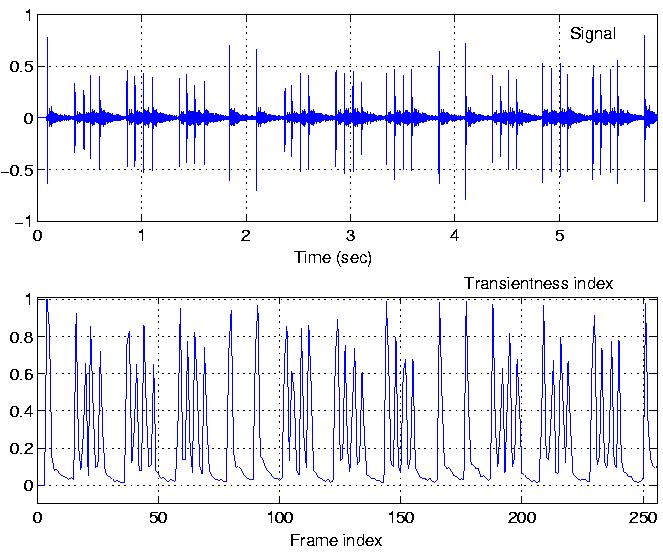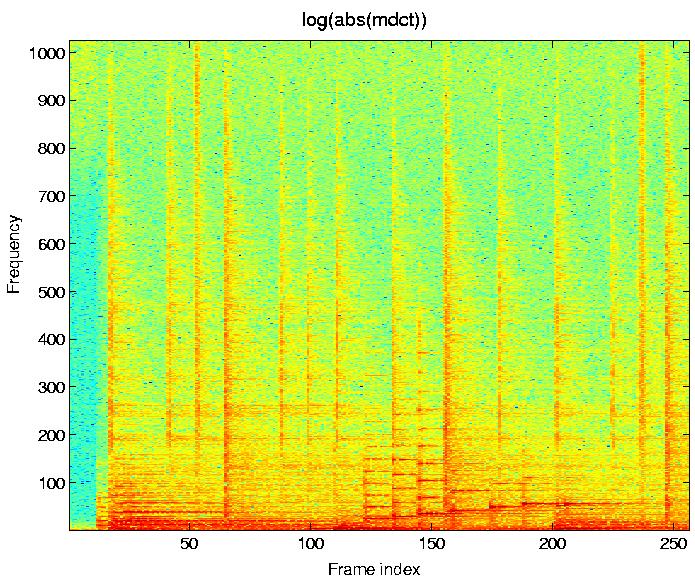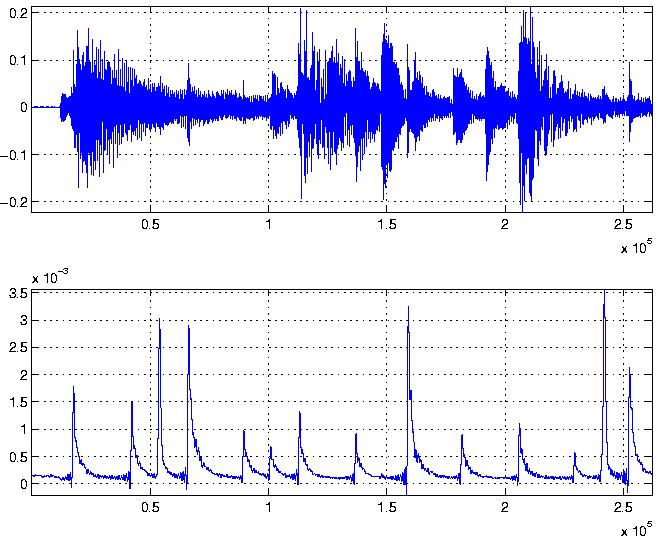Supplementary material
for the article
Determining local transientness of
audio signals
by
S. Molla and B. Torrésani
(site under construction)
Abstract
Using information theoretic criteria and MDCT and wavelet transforms, a
time dependent transientness index and a time-dependent tonality index
may be associated with audio signals. This finds applications in
several
contexts, in particular hybrid audio coders, where dynamic bit budget
allocation to tonal and transient layers is necessary. Extensions to
similar ideas in image modeling and coding are also possible.
Transientness and tonality indices
Given a signal model of the form
signal
= tonal + transient + residual
in mathematical terms, a (sparse) sum of wavelets and windowed cosine
functions, with independent normally distributed coefficients, it may
be
shown that the sum of logarithms of squares of the wavelet coefficients
of such a compount signal provides estimates on the "size" of the tonal
(i.e. local sine) layer. Similarly, the sum of logarithms of squares of
the local cosine coefficients of the signal yields estimates on the
"size" of the transient (i.e. wavelet) layer. From this, the relative
importances of tonal and transient layers may be computed.
Real sound examples from the paper:
The castagnette signal:
The castagnette signal, and the
corresponding time-varying transientness index
The jazz signal
The jazz signal, and the corresponding
time-varying transientness index
Corresponding
time-frequency representation
Transient
detection by envelope of high-pass filtered version



